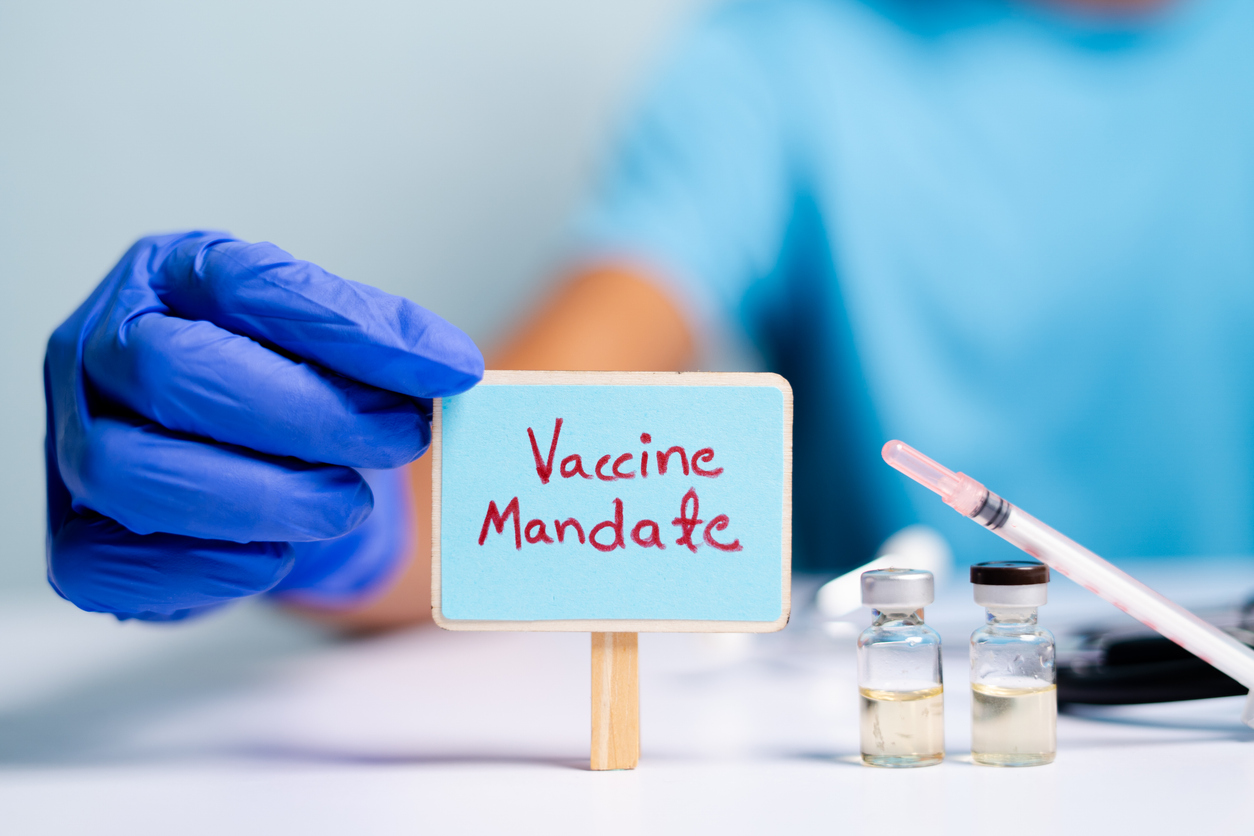What Does Biden’s Vaccine Mandate mean for California Workers?
With COVID-19 cases on the rise again due to the highly-transmissible Delta variant, President Joe Biden recently announced that his administration would issue an order that requires all federal employees and large private employers to either require COVID-19 vaccinations or test employees for COVID-19 on a weekly basis. While many applauded this move, others questioned the President’s ability to make such an order – and whether it was an infringement on individual rights to do so.
Currently, employers may require their employees to be vaccinated – and with a few exceptions, if you refuse to do so, you may be fired. So how does Biden’s vaccine mandate affect California employees? Broadly speaking, the mandate may make it more likely that your employer will require you to get vaccinated. Layered on top of existing California vaccination mandates for workers in certain industries, it means that most employees in the state will be required to get the vaccine or submit to weekly testing, unless they fall under a special exception. This area of law is nuanced, and can be confusing. If you have questions about your rights related to vaccination or testing – or if you have been terminated because you have refused the COVID-19 vaccine due to a disability or for religious reasons – contact our law firm. We can help you determine if you have a potential claim against your employer, including for religious discrimination or failure to accommodate a disability.
The Details of Biden’s Vaccine Mandate
On September 9, 2021, President Biden announced that he planned to mandate vaccination or testing for COVID-19 to ensure the safety of American citizens while navigating through the COVID-19 pandemic. To assist in this, the Department of Labor’s Occupational Safety and Health Administration (OSHA) has broad powers to establish workplace safety rules as part of its mission to ensure safe working conditions for workers. Through the Occupational Safety and Health Act, OSHA will develop rules for employers to comply with regarding COVID-19, and will also have the authority to issue fines (up to $14,000 per violation) against employers who fail to comply. As of today, these rules are only going to be enforced for employers with 100 employees or more and any federal. In addition, employers will be required to provide paid time off for employees to receive their vaccination and/or to recover after the injection. Notably, the mandate will have limited exceptions for workers with medical issues that prevent them from receiving the vaccination, or for those with sincerely held religious beliefs against vaccination.
Jacobson v. Massachusetts, (1905)
Although the mandate has not yet been issued, it has already drawn criticism – and promises of legal action to stop enforcement. However, this mandate has historical precedent, and is likely constitutional based on a 1905 United States Supreme Court case, Jacobson v. Massachusetts. The Jacobson case took place during a smallpox epidemic. A local Board of Health in Cambridge passed an ordinance that imposed a $5 fine on anyone over the age of 21 who refused to be vaccinated against smallpox. A man named Henning Jacobson refused the vaccine on the grounds that he had previously become ill from a childhood vaccination, and argued that the mandate was akin to imposing paganism. After Jacobson was prosecuted for his vaccine refusal, he appealed his case to the Supreme Court, arguing that the vaccine mandate violated his due process right to bodily integrity. In a 7-2 decision, the Supreme Court disagreed. The Court explained that Americans do not have a constitutional right to harm their fellow citizens by refusing a vaccine and further stated, “the liberty secured by the Constitution . . . does not import an absolute right in each person to be, at all times and in all circumstances, wholly freed from restraint… It also recognized that the government cannot compel anyone to take a vaccine that would harm their health. Importantly, Biden’s planned mandate falls well within the Jacobson ruling. In addition, there will also be a medical exception – just as the Jacobson court discussed. Under this precedent, it is unlikely that the challenges to Biden’s mandate will be successful.
Will I Be Required To Be Vaccinated to Keep My Job?
If you work for a large employer in California with more than 100 employees, then your employer will likely impose a vaccination requirement once OSHA issues the rule. However, this doesn’t mean that you have to get vaccinated. If you have a valid exemption for medical or religious reasons, you will not be required to get the COVID-19 vaccine. If you do not qualify for an exemption, you may undergo weekly COVID-19 testing.
For example:
Bob works for a large tech company based in Southern California. His employer has over 500 employees. The company has informed employees that they will either have to be vaccinated or undergo weekly testing. Bob has previously had severe allergic reactions to vaccines. His doctor advised him that he should avoid the COVID-19 vaccine for this reason. In this situation, Bob can request a reasonable accommodation from his employer. If his employer refuses to engage in an interactive process to determine the appropriate accommodation or fires Bob for refusing to get the vaccine, then Bob may be able to file a disability discrimination lawsuit against the company.
Note, federal government employees are also required to be vaccinated, as are workers in certain industries in California. Specifically, California has mandated that teachers, school staff, and workers who provide services or work in health care facilities must be fully vaccinated by September 30, 2021. If you work for a company that requires vaccination, you may be facing a difficult choice. If you are concerned that a workplace vaccine mandate would lead to disability or religious discrimination against you, reach out to a Southern California employment lawyer to learn more about your rights as an employee. You can reach us at info@odelllaw.com, filling out the form below or giving us a call at 949-771-8173.



